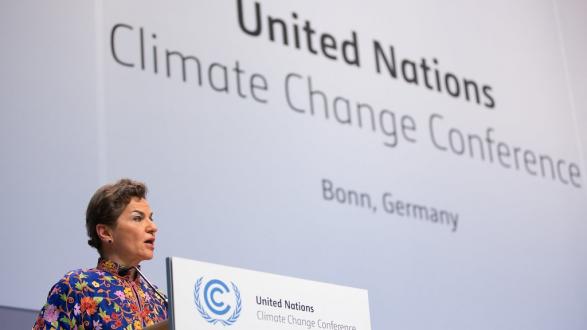Climate Change Disproportionately Affects Women
April 3, 2020
In:
The Pacific Council recently hosted a teleconference with Samantha Harris of Business for Social Responsibility and Emilia Reyes of Equidad de Género, and moderated by Jesse Medlong of DLA Piper. They discussed how climate change disproportionately affects women.
Here are key takeaways from the call:
- Medlong pointed out that 80 percent of those impacted by climate change are women. Reyes said women just 2 percent of the world’s arable land, yet because of traditional gender roles and structural inequalities, they will experience the harshest impacts of climate change.
- “People don’t fully realize how climate change affects businesses and workers,” Harris. “As we’re transitioning away from fossil fuels and coal, what implications does that have on workers? What are the human rights implications for certain communities where renewable energies are being installed?” Reyes said there is “a big disconnect between the world we want and the world we have now” when women are seen solely as energy consumers. She argued that everyone needs to dramatically their habits that have an impact on change climate habits. In other words, not using straws and plastic bags won’t be enough.
- Harris said that businesses haven’t yet grappled with the ways in which women specifically are impacted by climate change. “Rather than painting women as vulnerable victims, business should look at this as an opportunity to create resilient businesses,” she said. “If women are allowed to do more and have more agency, that results in more climate resilient communities. Right now, businesses operate in siloes, so while they may do good work in the climate space, they often aren’t communicating with other stakeholders.”
- Harris also pointed out that in the run up to the Paris Agreement, more businesses became engaged. The takeaways is that policy direction from governments is still very important in driving action. “Having more governments pay attention to the gender gap in climate change impacts will encourage more businesses to pay attention to it as well. These are problems that are best solved together,” she said.
Listen to the full conversation below:
_______________________
The views and opinions expressed here are those of the speakers and do not necessarily reflect the official policy or position of the Pacific Council.




